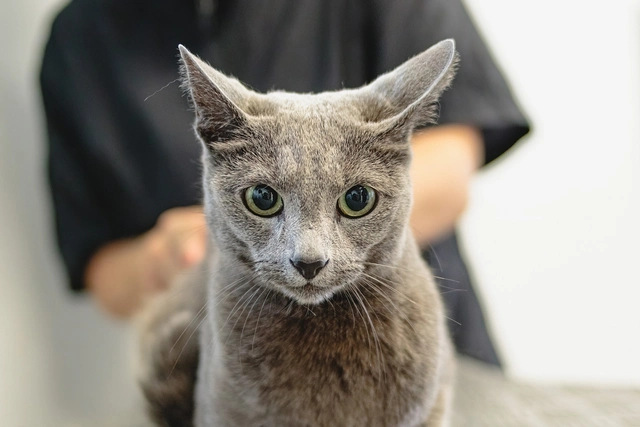Top 10 Best Pet Care Tips
Discover the top 10 essential tips for ensuring the well-being of your beloved pets. From diet and exercise to grooming and health care, these tips will help you provide the best care possible for your furry friends.

1. Provide a Balanced Diet
A balanced diet is crucial for your pet’s overall health and longevity. Ensure that your pet’s diet includes a mix of high-quality proteins, fats, carbohydrates, vitamins, and minerals. Consult with your veterinarian to choose the right food based on your pet’s age, breed, and health condition. Regularly updating your pet's diet as their needs change can prevent obesity, nutritional deficiencies, and other health issues. Always provide fresh water and avoid feeding human foods that could be harmful.
2. Regular Exercise
Regular exercise is vital for maintaining your pet's physical health and mental stimulation. Depending on your pet's breed and energy level, this can include daily walks, playtime, or interactive toys. Exercise helps manage weight, improve cardiovascular health, and reduce behavioral problems caused by boredom. Tailor exercise routines to your pet’s specific needs and abilities, and make sure to include activities they enjoy to keep them motivated and happy.
3. Routine Grooming
Routine grooming is essential to keep your pet’s coat, skin, and nails healthy. Regular brushing helps prevent matting, reduces shedding, and allows you to check for skin issues or parasites. Bathing should be done as needed, depending on your pet’s breed and lifestyle. Trim nails to prevent overgrowth and discomfort. Regular grooming not only improves your pet’s appearance but also strengthens your bond with them and contributes to their overall comfort and health.
4. Regular Veterinary Check-ups
Regular veterinary check-ups are crucial for early detection of health issues and preventive care. Schedule annual exams to monitor your pet’s health, update vaccinations, and perform necessary screenings. Your vet can provide advice on diet, behavior, and general care. Regular visits help to catch potential problems early and ensure that your pet remains healthy throughout their life. Follow your vet's recommendations for follow-up visits and preventive treatments.
5. Dental Care
Dental care is an important aspect of your pet’s overall health. Regular brushing of your pet’s teeth, along with dental check-ups, can prevent dental disease, bad breath, and tooth loss. Introduce dental chews or toys that help reduce plaque buildup. Your veterinarian can provide guidance on proper brushing techniques and recommend professional cleanings if necessary. Good dental hygiene contributes to your pet’s overall health and quality of life.
6. Safe and Comfortable Living Environment
Creating a safe and comfortable living environment is essential for your pet’s well-being. Ensure that your home is free from hazards such as toxic plants, small objects that could be swallowed, and unsafe chemicals. Provide a comfortable sleeping area, and make sure your pet has access to fresh water and a clean litter box or bedding. A safe and cozy environment helps reduce stress and promotes a happy, healthy pet.
7. Training and Socialization
Training and socialization are crucial for a well-behaved and confident pet. Start training early to teach basic commands and address behavioral issues. Socialize your pet by exposing them to different environments, people, and other animals to build their confidence and reduce fearfulness. Consistent positive reinforcement helps reinforce good behavior and strengthens your bond with your pet. Proper training and socialization contribute to a well-adjusted and happy companion.
8. Pet Identification
Pet identification is crucial for ensuring your pet's safe return if they become lost. Microchipping is a permanent and effective method of identification, while collars with ID tags provide immediate information. Ensure that your pet's identification details are up-to-date and that the microchip is registered with your current contact information. Proper identification helps increase the chances of reuniting with your pet in case they wander away or get lost.
9. Hydration
Proper hydration is essential for your pet’s health. Ensure that your pet always has access to fresh, clean water. Adequate hydration supports vital functions such as digestion, circulation, and temperature regulation. Monitor your pet’s water intake and adjust based on their activity level, diet, and health condition. Encourage water consumption by providing multiple water sources and maintaining clean bowls. Proper hydration is fundamental to preventing health issues such as urinary tract infections and kidney problems.
10. Understanding Behavioral Needs
Understanding and addressing your pet’s behavioral needs is essential for their mental and emotional well-being. Observe your pet’s behavior to identify their needs and preferences. Provide appropriate stimulation through toys, puzzles, and interactive activities. Address behavioral issues promptly and consult with a professional if necessary. Recognizing and fulfilling your pet’s behavioral needs helps prevent stress, anxiety, and destructive behavior, leading to a happier and healthier pet.
keywords: Pet Care; Animals; Pet Health.